
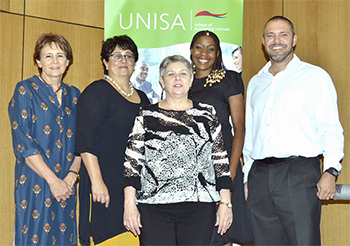
All smiles at the College of Accounting Sciences first public lecture: Prof Bienkie Shuttleworth (Head: Graduate Studies and Research, College of Law), Prof Philna Coetzee (Deputy Executive Dean: College of Law), Prof Nonna Martinov-Bennie (Guest speaker and facilitator for the day), Nolo Pududu (Manager: Centre of Accounting Studies) & Prof Lourens Erasmus (Department of Financial Governance, College of Law)
In the light of ongoing investigations into several South African corporate and government governance scandals and possible audit failure in these instances, a public lecture by a leading international scholar on the topic of professional scepticism in auditing was highly topical.
On 15 February 2019, Unisa’s College of Accounting Sciences (CAS) hosted, for the first time since its inception in 2014, a public lecture. Delivered by Prof Nonna Martinov-Bennie from Macquarie University, Sydney, Australia, the topic was Professional scepticism in auditing.
Professional scepticism is an important aspect of auditor judgement at every stage of the audit process and is considered fundamental to audit quality. Professional scepticism in auditing is defined by the international standards on auditing as "an attitude that includes a questioning mind, being alert to conditions which may indicate possible misstatement [in financial reporting] due to error or fraud, and a critical assessment of audit evidence".
However, despite professional scepticism being considered a primary driver of audit quality and mandated in the audit of financial statements by regulators and standard setters, it remains difficult to define as well as measure, and continues to underpin claims by regulators globally that audit failures are mainly due to auditors’ lack of professional scepticism. Not surprisingly, the issue of professional scepticism continues to be a significant focus of attention for accounting professional associations, audit firms, standard setters and the academic community, to name but a few, albeit significant, stakeholders.
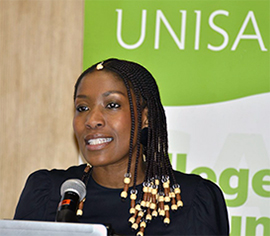
Nolo Pududu (Manager: Centre of Accounting Studies) did an excellent job in facilitating the programme.
Whether and how aspects of the concepts underlying professional scepticism may be relevant, not just to auditors, but others involved in the financial reporting supply chain - including preparers, internal auditors, the CEO, CFO and audit committee members - to ensure quality financial reporting and meet public expectations is now also starting to be examined.
The lecture covered the latest developments in this very important and interesting space of professional scepticism. Main discussion points were the various factors that influence the judgement process called professional scepticism and the importance of the role of other stakeholders in ensuring audit quality. It was also recognised that professional scepticism is not easy to pin down and the urge to use it, or rather lack of it, as overall classification for anything that is wrong in auditing or financial reporting should be resisted. While there is certainly some deficient performance in terms of the levels of professional scepticism being exercised by auditors, expectations by stakeholders of auditors may also be unreasonable.
Although the public lecture clashed with the official Unisa academic opening, staff members attended in numbers as they had an interest in such a topical topic.
* By Lourens Erasmus, Professor in the Department of Financial Governance, College of Law
Publish date: 2019-02-21 00:00:00.0
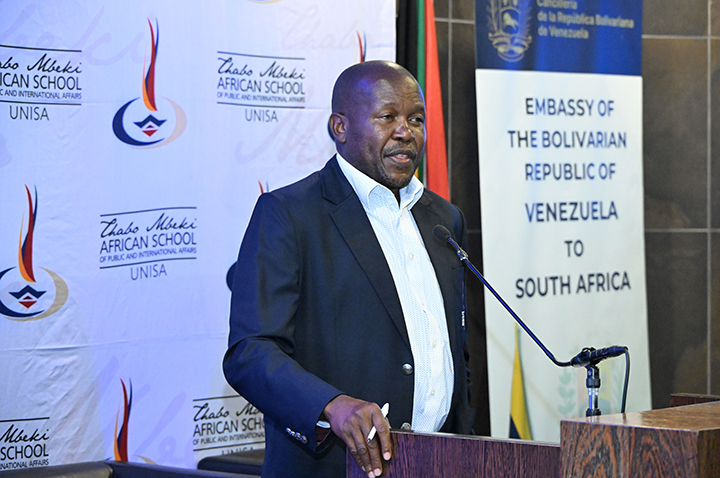 Unisa seminar examines breach of the international legal framework
Unisa seminar examines breach of the international legal framework
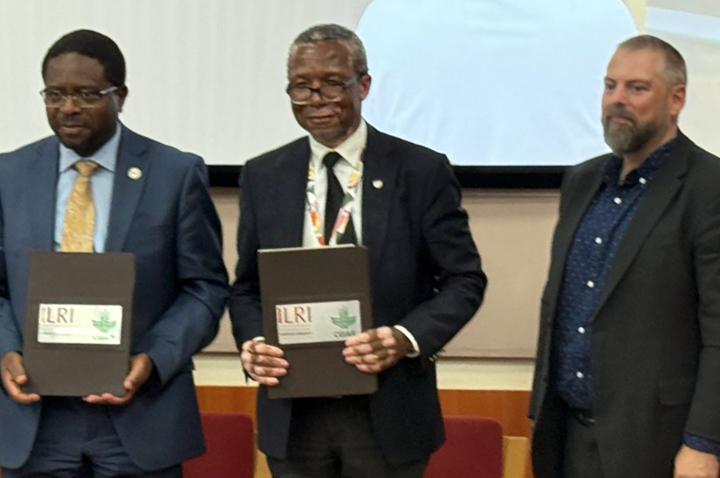 Unisa and ILRI sign landmark MoU to advance Africa's genomic leadership
Unisa and ILRI sign landmark MoU to advance Africa's genomic leadership
 AMT to strengthen global black hole imaging and advance African astrophysics
AMT to strengthen global black hole imaging and advance African astrophysics
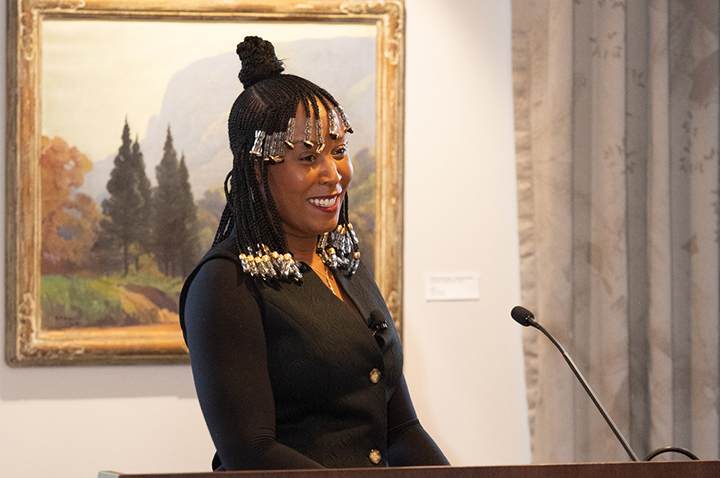 Unisan awarded Presidential Fellowship at American university
Unisan awarded Presidential Fellowship at American university
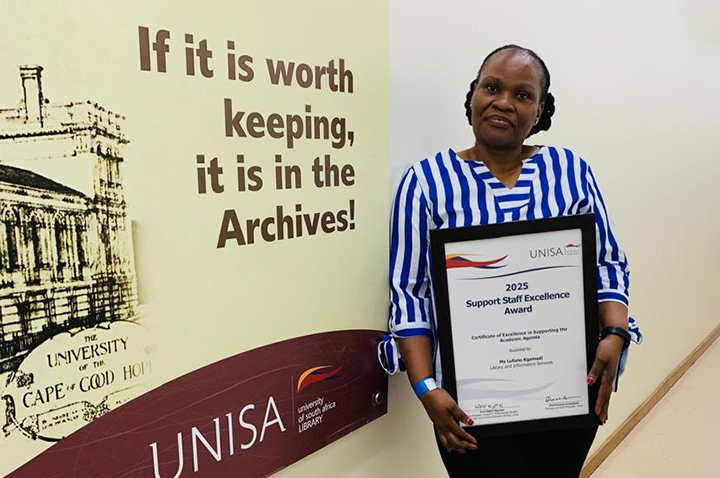 Scholar-practitioner excellence recognised at Unisa
Scholar-practitioner excellence recognised at Unisa